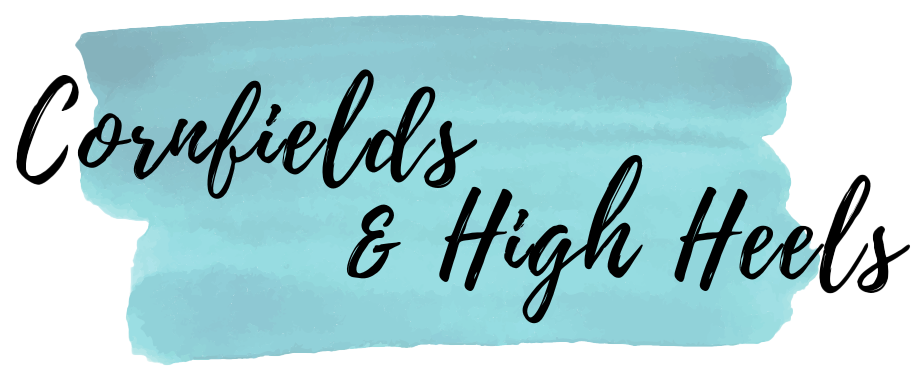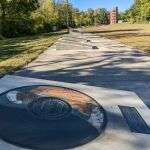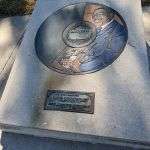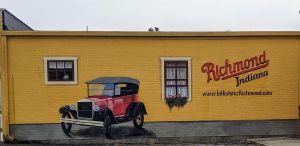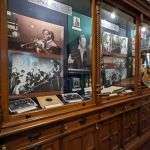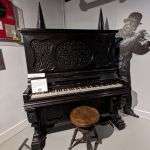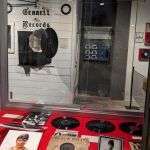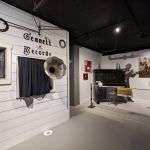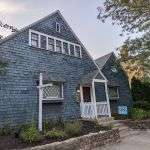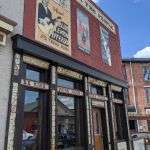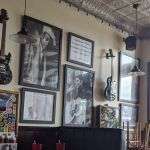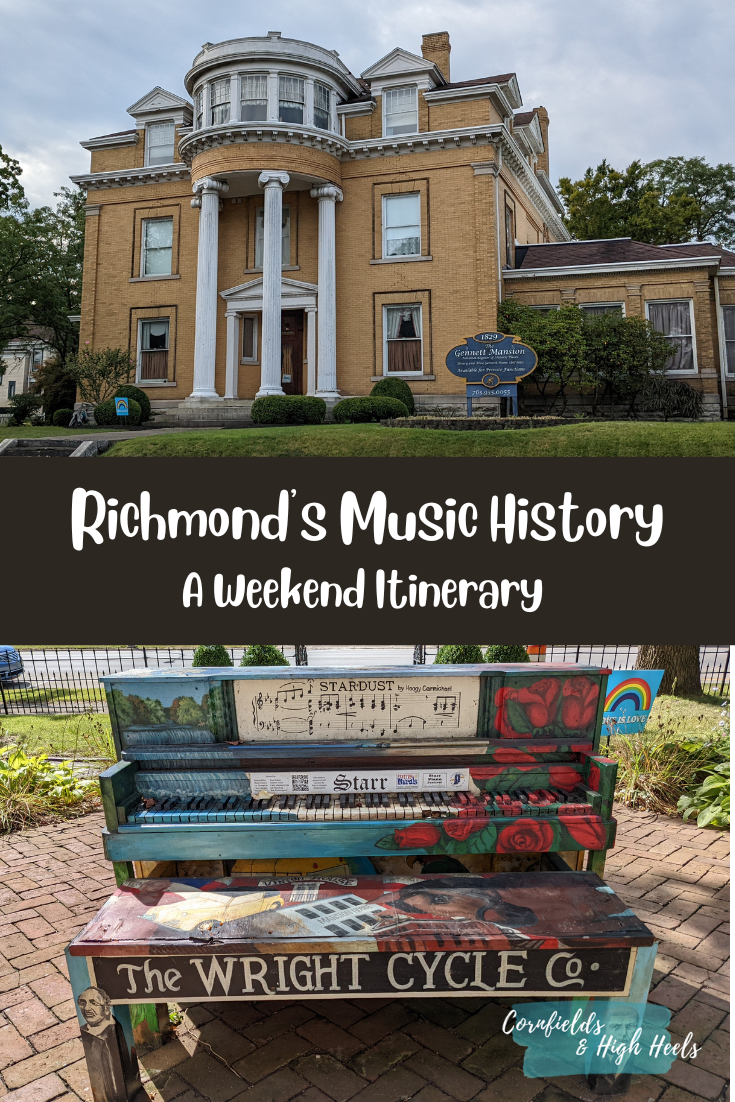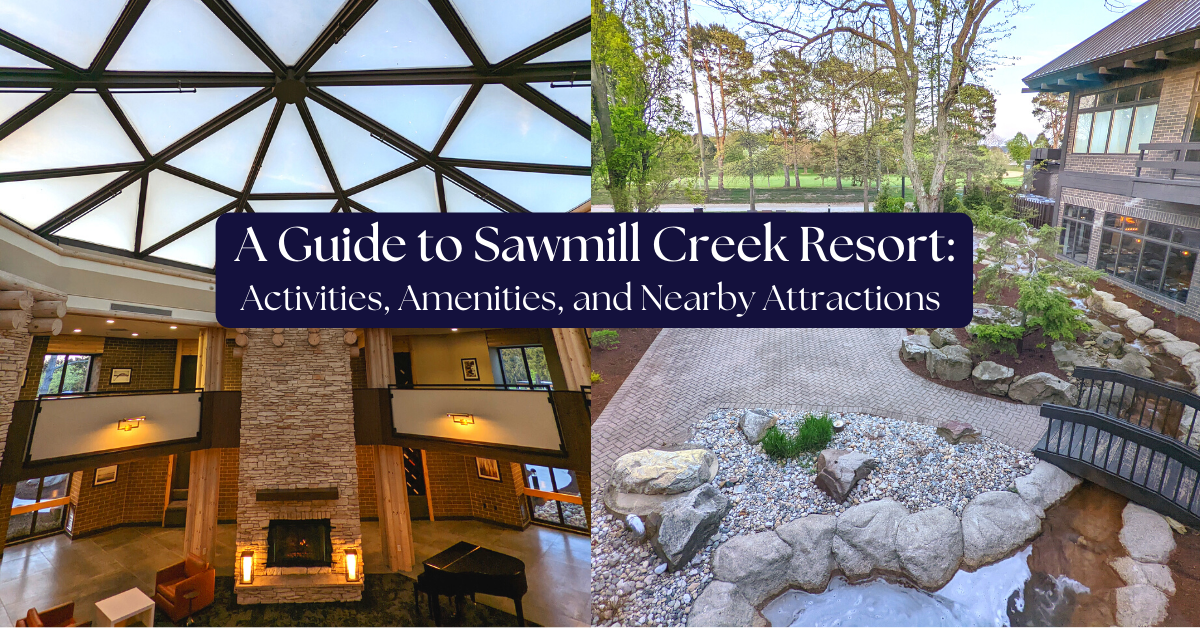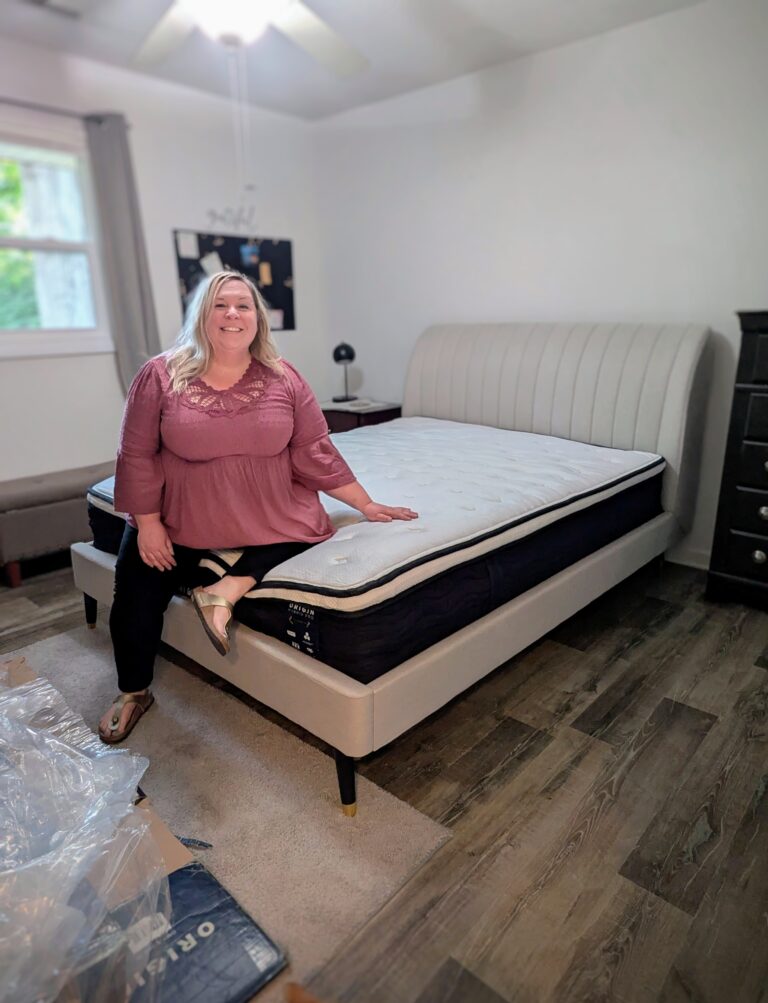Richmond’s Music History – A Weekend Itinerary
Disclaimer: Blog posts may contain affiliate links/ads or be sponsored/hosted. If you click on these links, I may earn a small commission. This helps keep the blog running and supports me – at no cost to you. If you have any questions, please read my disclaimer and privacy policy. All opinions on Cornfields & High Heels are my own.
I’ve fallen in love with the history of Richmond’s music industry. If you aren’t familiar with Gennett Records and Starr Piano Company, they are a fascinating part of the Hoosier past. And played an important role in introducing talented musicians to the world. It all started in Wayne County, Indiana.
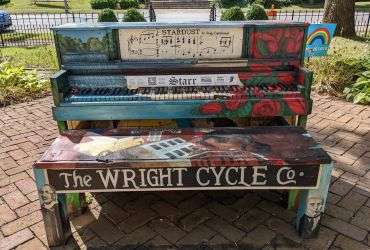
Disclaimer: Blog posts may contain affiliate links and ads. If you click on these links I may earn a small commission. This helps keep the blog running and supports my family – at no cost to you. If you have any questions, feel free to read my disclaimer and privacy policy. A special thanks to Visit Richmond for hosting my trip. All opinions in this article are my own.
Richmond’s music history
The Starr Piano Company began in 1872 as a piano manufacturer. In 1916 they also started manufacturing phonographs for major labels before starting their own recording label, Gennett Records. The name was taken from their top managers: Harry, Fred, and Clarence Gennett, and the first record was released in 1917.
Starr used the rail lines from Richmond to major cities, like Chicago, Indianapolis, St. Louis, and Cincinnati, to transfer their products. Musicians would arrive at the studio the same way. Although smaller in size, Richmond had the same advantage as these major cities for manufacturing and recording. Famous musicians left an imprint in Richmond and are a part of the Gennett Records’ history. Gennett became known for their willingness to record musicians not yet in the musical mainstream due to racial segregation. This allowed for talent like Louie Armstrong, Duke Ellington, and “Jelly Roll” Morton to make a name for themselves. Unlike any other recording studio in its time, Gennett Records opened its studio to everyone.
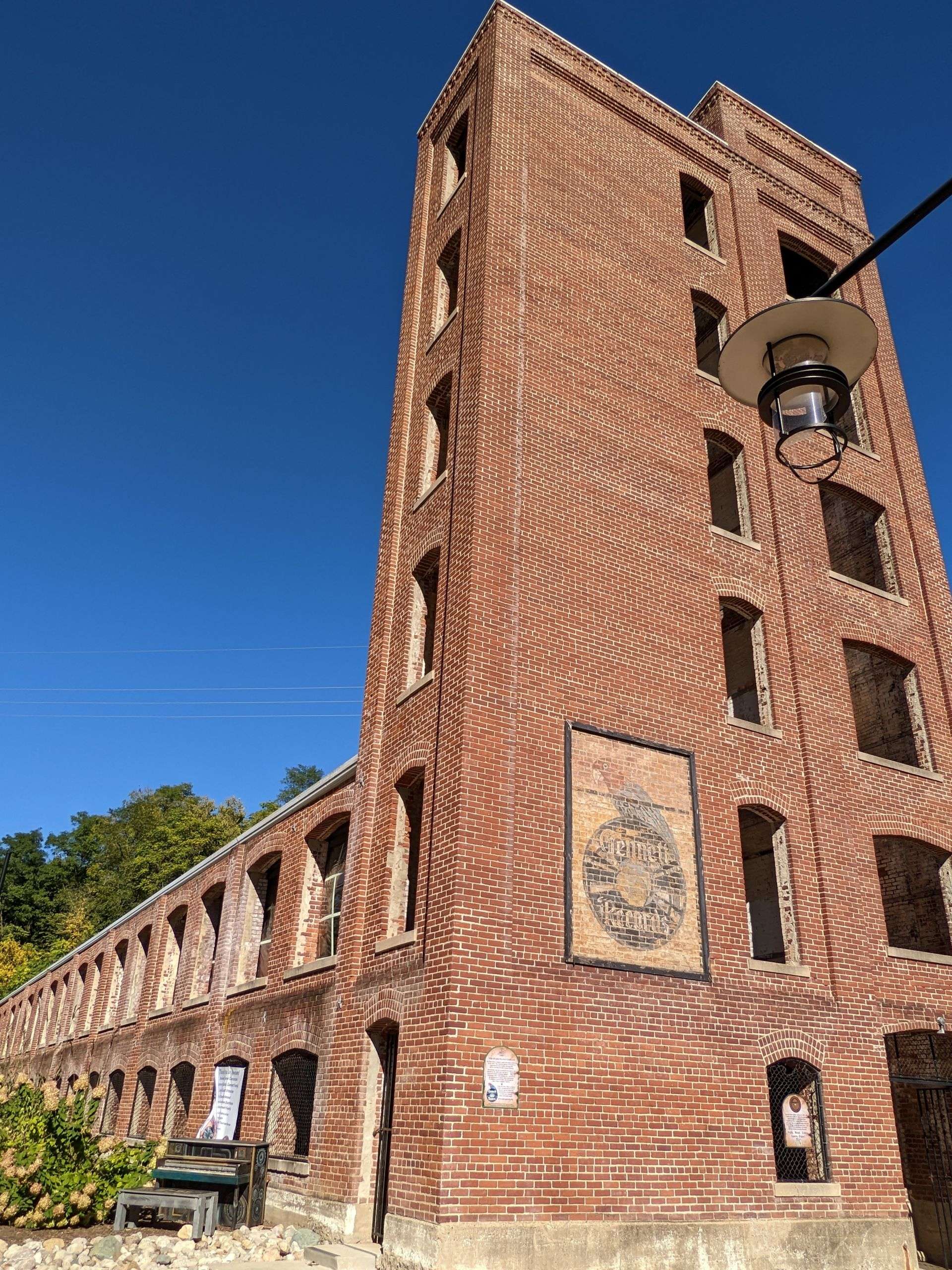
After the Depression, Gennett Records eventually closed its doors and Starr Piano Company would follow suit and close for good by the 1950s. All but one of the buildings are standing today. The historic Starr Gennett Building hosts the Richmond Farmer’s Market in the winter and is used as a special events rental throughout the year. It is also the site of the Gennett Records Walk of Fame.
Richmond’s Music History – A Weekend Itinerary
- Day 1
- Wayne County Historical Museum, Tour of the Gennett Mansion, dinner at The Cordial Cork, overnight stay at the Historic Gennett Mansion Guest House
- Day 2
- Gennett Records Walk of Fame, lunch (or a later dinner with live music) at Firehouse BBQ & Blues, and the Model-T Ford Museum
Gennett Records Walk of Fame
The Gennett Records Walk of Fame is located next to the Starr Gennett Building and is a row of 29 raised medallions honoring the early trailblazers of jazz, blues, country, and gospel music. The medallions are large, mosaic tiles of musicians who have recorded in Richmond, at the Gennett Studios. The Starr Piano Company and Gennett Records record studios once stood where the medallions are. The Starr Gennett Building, the only remained building, is used for community events and the Winter Farmers Market. The Walk of Fame is free to visit and always open.
Model T-Ford Museum
309 N 8th St, Richmond, IN
Along with being the home to Gennett Records and Starr Piano Richmond is also home to the larger Model T Ford Club of America and the Model T Museum. The museum is located in the Historic Depot District and contains a museum in their main building with a gift shop, and a vintage Ford agency building with a 1920s Model T garage. You can check out the museum (next door to Firehouse BBQ & Blues) and their Driving or Walking Tour through Old Richmond & Starr Piano” for a glimpse of where the German cabinetmakers at Starr Piano Company lived, and the remains of Gennett Records and Starr Piano Company.
Wayne County Historical Museum
1150 North A Street, Richmond, IN
The newest exhibit, Gennett Records: The Birthplace of American Recorded Music, is an excellent addition to the Wayne County Historical Museum. This museum also happens to be one of my favorite county historical museums in Indiana. Recording studios in the 1920s certainly didn’t look like they do nowadays, and this special exhibit gives you an interactive glimpse of that. Displays are located at various spots throughout the museum and on the lower level. Travel back in time and learn about the history of recorded music and the contributions made by the Gennett family.
[irp posts=”3502″ ]
The Gennett Mansion
1829 E Main St, Richmond, IN
The Gennett Mansion is also known as the “Henry & Alice Gennett Home” and is registered on the National Register of Historic Places. Henry Gennett was the former owner of Starr Piano Company and the founder of Gennett Records. The mansion sits gloriously along Main Street in Richmond and can’t be missed with its yellow exterior and Colonial Revival Architecture. Owners, Ralph and Tina Conti, offer scheduled tours of the mansion and appointments are available to rent the space as an events venue.
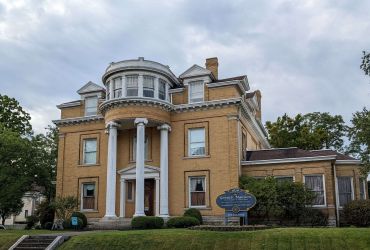
Historic Gennett Mansion Guest House
The former Carriage House for the Gennett Mansion is a unique and beautiful lodging option in Wayne County, it is located on the same property as the mansion. The Historic Gennett Mansion Guest House is available for rent on Airbnb and offers two bedrooms and one bathroom. The private guest house sleeps up to six people and has its own kitchen and living room. I had the privilege of staying a few nights here and enjoyed the comfortable beds, open kitchen, and cozy couch to relax in at the end of the day. My daughter loved having her own space upstairs in the loft.
The guest house has free and convenient parking and free wifi. It’s within a mile of things to do, shopping, and restaurants. The carriage house carries its own bit of history, it has been many things over the years. It once stored set pieces for the Richmond Civic Theatre and has been used as a sewing shop, office space, and boutique.
The Cordial Cork
911 N E St, Richmond, IN
On the second Saturday of every month, The Cordial Cork features “Cork After Dark” from 9 pm to midnight with live music, discounted appetizers, and featured drinks. They are a family-friendly scratch kitchen located in the Historic Depot District with more than 100 wine selections to choose from. Jazzy music plays from the wine bar, and an 1898 Starr piano sits available for the nights with live music. I’d like to suggest ordering a Breakin’ Bread appetizer to start off, it’s an entire baguette stuffed with cheese and herb butter, and served with three cheese dips. Good gravy, it’s got to be what they’ll be serving in heaven.
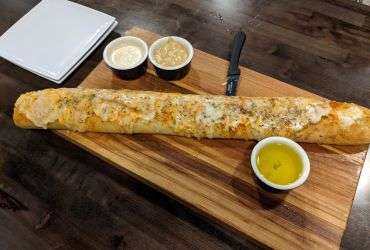
[irp posts=”3538″ ]
The Firehouse BBQ and Blues
400 N 8th St, Richmond, IN
If you’re in the mood for some casual dining and live music, The Firehouse BBQ and Blues is the place to go. The renovated historic firehouse serves pulled pork, chicken, ribs, flatbreads, and more, and has live music on the weekends. A stage with a Gennett Records mural backdrop graces the back of the dining room, and the walls are filled with blues memorabilia and Richmond history. This is truly one of the most unique places to dine in Wayne County, so much so that I’ve listed it as a top thing to do in 100 Things To Do In Indiana Before You Die.
Other Richmond “music history” itinerary ideas:
- Richmond Symphony Orchestra and Richmond Community Orchestra
- Live music venues: New Boswell Brewery & Tap Room, 4th Floor Blues Club
- Wayne County musician murals
Nearby things to do:
- 10 Free Places to Play in Richmond, Indiana
- Where to Eat in Richmond, Indiana
- Places to Explore in Richmond, Indiana
- East Central Indiana Pumpkin Patches, Orchards & Corn Mazes
- Things To Do in Henry County, Indiana
- Tour a famous basketball filming location right in the heart of Hoosier country!
Pin It For Later!
